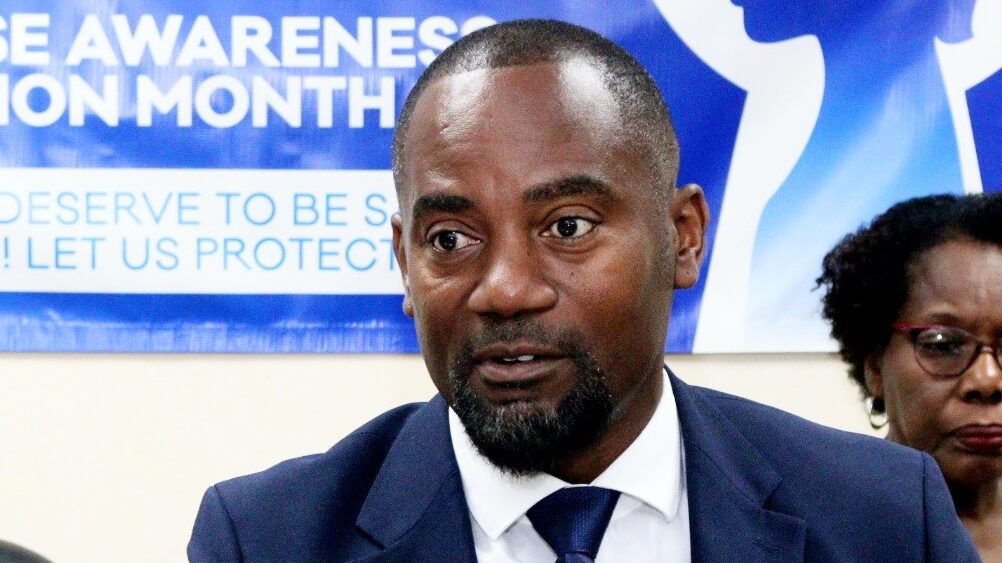Revised Child Protection and Child Justice Bills Unveiled Following Review by Parliamentary Committee

Government revises Child Protection and Child Justice Bills following feedback from a Joint Select Committee. Amendments focus on abuse definitions, child offender language. Bills align with international agreements. Legislation up for debate soon.
Government has returned to the drawing board and come up with two revised pieces of proposed legislation related to child welfare – the Child Protection Bill and the Child Justice Bill. The revisions were made after the bills were reviewed by a seven-member parliamentary Joint Select Committee appointed last May.
Most of the public’s comments on the bill to protect children dealt with gender and sexual orientation, according to the committee’s report which runs to 800 pages.
Key amendments include removing “or omission” from the definition of physical abuse, deleting “silence” from the definition of verbal abuse, and changing language around imprisoning versus detaining child offenders.
The committee was tasked with examining whether the draft bills aligned with international agreements like the UN Convention on the Rights of the Child, and the Universal Declaration of Human Rights, promoted child safety and welfare, protected children from abuse and neglect, and put the best interests of children as the paramount consideration.
After receiving written and oral submissions from 13 organisations and individuals, including the Democratic Labour Party (DLP), child rights groups, government agencies, and legal experts, the committee made several changes to the bills.
Commenting on the outcome of the committee’s work, Minister of People Empowerment and Elder Affairs Kirk Humphrey said the new bills will now return to lawmakers for debate.
The bills are now on the Order Paper for the next session of the House of Assembly which reopens at the end of this month following the Easter break.
“Most I will tell you is that all the persons who submitted comments on the bill were heard and the amendments made were deemed necessary by the committee,” Humphrey told Barbados TODAY on Tuesday.
“Recall that the committee took both written and oral submissions. So, some changes have been made to the bills. The committee spent a generous amount of time in vigorous discussions on the matter with the assistance of evidence and explanations provided by Ms Shawn R. Belle [Chief Parliamentary Counsel] to the satisfaction that the bill does not allow the State to assign gender or to make determination on sexual orientation,” concluded the four government MPs, one government senator and two independent senators on the joint select committee.
Regarding the Child Justice Bill, the report said in its 800-page report: “The major concerns and contentions were with the provisions for ‘diversion’ and ‘secure residential facility,’ which were satisfactorily resolved.”
Diversion is an alternative procedure in a criminal case where the prosecution is interrupted through a deal between the defendant and the prosecutor where the prosecutor either dismisses the charges completely or does not bring any charges to begin with.
Under the Child Protection Bill, some amendments were made related to the term ‘physical abuse’ which means any act or omission by a perpetrator which causes pain or injury to the body of a child, and includes bullying.
The definition ‘physical abuse’ was changed to remove the words ‘or omission’ and ‘silence’ was removed from the definition of ‘verbal abuse’, while the Chief Parliamentary Counsel (CPC) – the senior civil servant responsible for drafting legislation for the government – and the ministry agreed that the definition of ‘non-verbal abuse’ was unnecessary.
A new definition of ‘non-verbal abuse’ was proposed, but the CPC flagged ‘silence’ to be reverted to, after consultation with the stakeholders and the ministry.
With regards to the Child Justice Bill, that portion which states that a written notice be made to the child to appear before a magistrate, was changed to say the notice should be sent to the parent.
The clause which declares ‘a term of imprisonment’ for a child offender, was also softened by the CPC to read ‘a term of detention’.
The committee said that even though it may not have agreed with all the concerns raised, the suggestions made and the recommendations put forward, it is “forever grateful for the different perspectives and views shared which valuably assisted it in making the relevant amendments reflecting greater transparency and accountability”.
Among those making submissions were the DLP, Dr Marsha Hinds-Myrie and Anya Lorde of Operation Safe Space, the Child Care Board, the Probation Department, the Barbados Bar Association and sociologist Dr Veronica Evelyn.
emmanueljoseph@barbadostoday.bb


